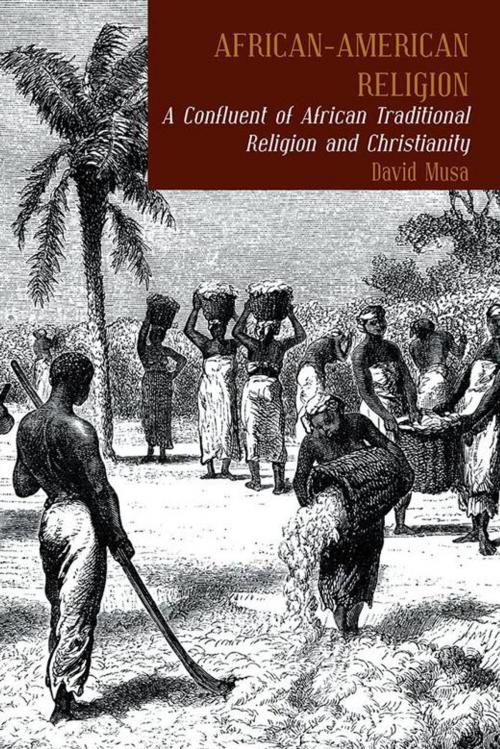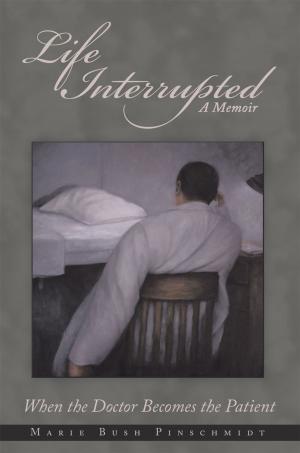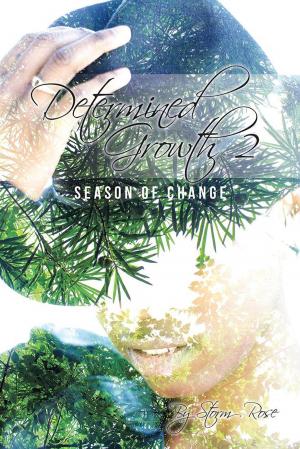African-American Religion
A Confluent of African Traditional Religion and Christianity
Nonfiction, Reference & Language, Education & Teaching, History| Author: | David Musa | ISBN: | 9781504913683 |
| Publisher: | AuthorHouse | Publication: | July 6, 2015 |
| Imprint: | AuthorHouse | Language: | English |
| Author: | David Musa |
| ISBN: | 9781504913683 |
| Publisher: | AuthorHouse |
| Publication: | July 6, 2015 |
| Imprint: | AuthorHouse |
| Language: | English |
Literature on North American slavery is almost inexhaustible but negligent of the religious culture of the slaves, most especially African-American Christianity. As noted in Robert Handys insightful article, for several decades AfricanAmerican Christianity appeared only as incidentals in the general historiography of American Church history. Considering the immeasurably positive role of the Church in the lives of African-Americans, this oversight is almost inexcusable. Even where studies in slave Christianity have been attempted one would search in vain for any substantial discussion of the mutual effects of the slaves original African religion and Christianity. Thus this study is a contribution to recent explorations into that vital aspect of the history of African slaves in North America their Christianization. The study focuses on the question of why the African slaves were apparently more responsive to Christianity in the Great Awakenings than during the previous evangelization efforts by the Anglican missionaries. I propose that the continuities as well as discontinuities between Christianity and African Traditional Religion were key among determinant factors in the slaves response to Christianity. Basically, the slaves responded to the type of Christianity in which these factors were more prominent, the Great Awakenings vis--vis the Anglican version. The first chapter of this study highlights the problem of past inattention to slave Christianity, especially as it relates to African Traditional Religion. In Chapter two, I argue for both West Africa as the original home of the slaves and African Traditional Religion as the predominant religious culture of that region. The third chapter describes the process, personnel, and problems encountered in slave Christianization. Chapters four and five analyze and evaluate the impact of Christianizing efforts by the Anglican missionaries and revival evangelists respectively. Chapter six summarizes and discusses the value of my findings for the African-American Church and Christianity in general. The study contains suggestions for further research.
Literature on North American slavery is almost inexhaustible but negligent of the religious culture of the slaves, most especially African-American Christianity. As noted in Robert Handys insightful article, for several decades AfricanAmerican Christianity appeared only as incidentals in the general historiography of American Church history. Considering the immeasurably positive role of the Church in the lives of African-Americans, this oversight is almost inexcusable. Even where studies in slave Christianity have been attempted one would search in vain for any substantial discussion of the mutual effects of the slaves original African religion and Christianity. Thus this study is a contribution to recent explorations into that vital aspect of the history of African slaves in North America their Christianization. The study focuses on the question of why the African slaves were apparently more responsive to Christianity in the Great Awakenings than during the previous evangelization efforts by the Anglican missionaries. I propose that the continuities as well as discontinuities between Christianity and African Traditional Religion were key among determinant factors in the slaves response to Christianity. Basically, the slaves responded to the type of Christianity in which these factors were more prominent, the Great Awakenings vis--vis the Anglican version. The first chapter of this study highlights the problem of past inattention to slave Christianity, especially as it relates to African Traditional Religion. In Chapter two, I argue for both West Africa as the original home of the slaves and African Traditional Religion as the predominant religious culture of that region. The third chapter describes the process, personnel, and problems encountered in slave Christianization. Chapters four and five analyze and evaluate the impact of Christianizing efforts by the Anglican missionaries and revival evangelists respectively. Chapter six summarizes and discusses the value of my findings for the African-American Church and Christianity in general. The study contains suggestions for further research.















